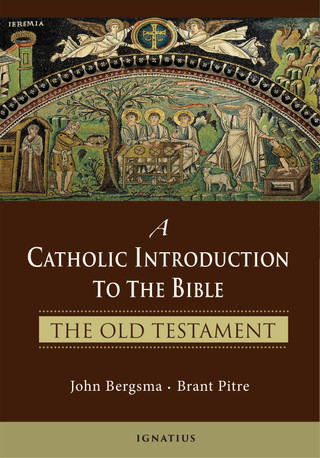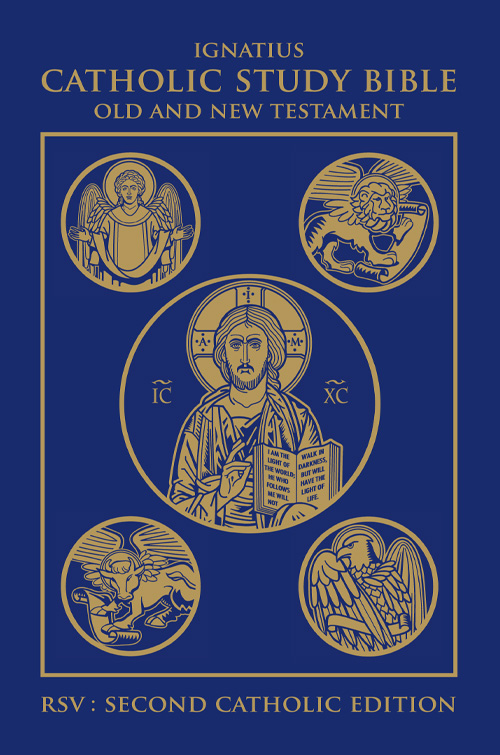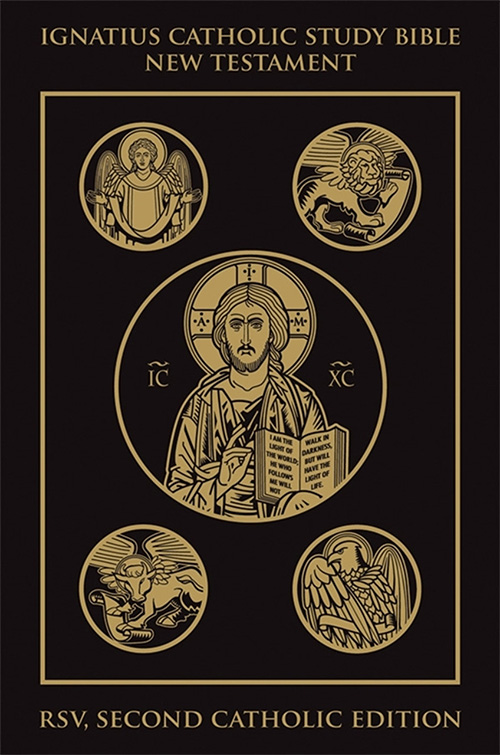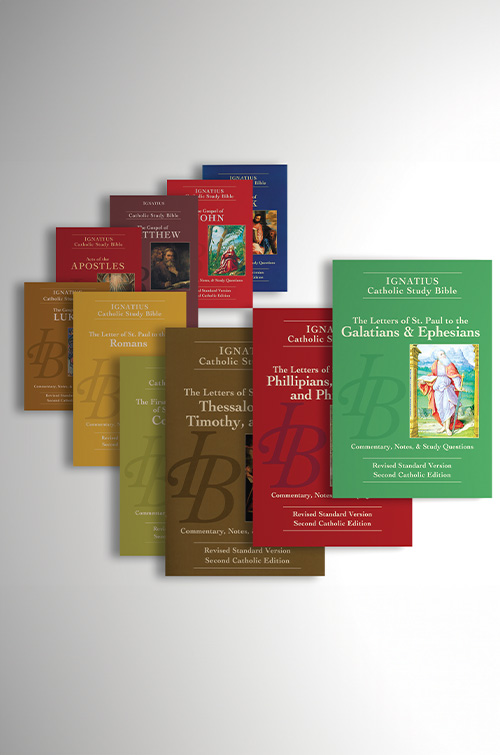Bible Resources
General Introduction to Scripture

A Catholic Introduction to the Bible: The Old Testament
Authors: John Bergsma and Brant Pitre
Although many Catholics are familiar with the four Gospels and other writings of the New Testament, for most, reading the Old Testament is like walking into a foreign land. Who wrote these forty-six books? When were they written? Why were they written? What are we to make of their laws, stories, histories, and prophecies? Should the Old Testament be read by itself or in light of the New Testament?
John Bergsma and Brant Pitre offer readable in-depth answers to these questions as they introduce each book of the Old Testament. They not only examine the literature from a historical and cultural perspective but also interpret it theologically, drawing on the New Testament and the faith of the Catholic Church. Unique among introductions, this volume places the Old Testament in its liturgical context, showing how its passages are employed in the current Lectionary used at Mass.
Accessible to nonexperts, this thorough and up-to-date introduction to the Old Testament can serve as an idea textbook for biblical studies. Its unique approach, along with its maps, illustrations, and other reference materials, makes it a valuable resource for seminarians, priests, Scripture scholars, theologians, and catechists, as well as anyone seeking a deeper understanding of the Bible.
$54.95 Paperback
$35.72 eBook

Inside The Bible: A Guide to Understanding Each Book of the Bible
Author: Fr. Kenneth Baker
This book is a popular introduction to each of the 73 books of the Bible designed to help the reader grow in the knowledge and love of God’s Word. The introduction to each book includes the time frame and author, the theme, a summary of the contents and some comments about the context in which it was written, the theology of the book, an outline, and a prayer taken from the book. Fr. Baker provides quick access to essential information the daily or occasional reader of Sacred Scripture should find helpful.
The book may also be of help to more advanced students who wish to refresh their memory of a particular book of the Bible. By carefully reading Inside the Bible one can have a thumbnail summary of each book of the Bible at his fingertips.
Many Catholics revere the Bible without reading it. They find themselves paralyzed, not knowing where to start reading. Fr. Kenneth Baker comes to the rescue. In brief synopses of the 73 books, he guides new readers through the threshold and shows them how they can move forward on their own.
$21.95 Paperback
$14.27 eBook

God and His Image: An Outline of Biblical Theology
Author: Dominique Barthélemy
Fr. Dominique Barthélemy, O.P., was an internationally recognized expert on Old Testament studies and a member of the Pontifical Biblical Commission. In this highly acclaimed work, he dispenses with the technical language of exegesis and linguistics and speaks more simply and directly as a priest, a teacher, a believer about the heart of the Biblical message. This work is a beautiful and inspiring introduction to the spiritual teaching of the Old Testament, a book that will greatly help believers to hear the renewing and rejuvenating Word of God with deepened understanding and appreciation.
This is a book about the close relationship between God and man. It is about the long history of God’s love for man and the struggles that man has had in remaining faithful to God and keeping intact the divine image in which he was created. Barthélemy’s purpose here is to present what God says about himself and about those made in his image (man) in the inspired texts of Scripture. Fr. Barthélemy helps us see the profound unity between the Old and New Testaments, and he shows how the Old Testament is a necessary and valuable light for men of faith today.
This powerful work by an acclaimed Biblical and spiritual writer will enkindle the heart and enlighten the mind of modern man to see who God really is and who we truly are in God’s eyes, helping us to understand the full extent of our deep need for God and knowledge of our ultimate purpose in life.
$16.95 Paperback

Cur Deus Verba: Why the Word Became Words
Author: Jeremy Holmes
Cur Deus Verba unfolds a systematic theology of Scripture from a single key question: What did God seek to accomplish by making the Bible? The answer requires seeing why the Holy Trinity made anything at all, why the Word became flesh, and finally why the Church needs an inspired text. As Christ is more fully “man” than any mere man, so his Church is more fully “society” than any merely human society. And as every society has its literary tradition, so the Church needed a canon of literature that would be more fully “book” than any merely human book.
But to grasp what God intended to accomplish, we have to see how he intended to do it. To the extent possible, God wanted human beings to cause not just the text but revelation itself, and paradoxically this exaltation of human agency gave rise to the need for Scripture’s spiritual sense. The spiritual sense of Scripture leads in turn to a meaning of the term “literal” that is unique to the realm of theology, and the connection between the two means that we cannot follow the literal sense without grasping the spiritual as well.
Once God has made what he intended in the way he intended, one question remains: How does this inspired text continue to exist? As with any text, the answer is that Scripture exists in physical books, but really and principally in the hearts of the readers. And Scripture’s own place in the salvation history it records means that one human heart is preeminent: the text of Sacred Scripture exists exemplarily in the Heart of Jesus Christ.


